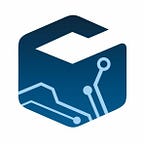Types of SaaS Software: Categories and Examples
1. Vertical SaaS
Vertical SaaS solutions are designed to meet the needs of specific industries, such as healthcare, finance, or retail. These applications are tailored to the unique requirements of each industry, providing features and functionality that are specific to their needs. Vertical SaaS applications can help businesses improve their processes, increase efficiency, and reduce costs.
2. Horizontal SaaS
Horizontal SaaS solutions are designed to meet the needs of businesses across multiple industries. These applications provide a broad range of features and functionality that are relevant to a wide range of business types. Horizontal SaaS applications can help businesses improve their operations, streamline processes, and increase productivity.
3. Infrastructure as a Service (IaaS)
Infrastructure as a Service (IaaS) is a type of SaaS that provides users with access to cloud-based infrastructure, such as servers, storage, and networking. This allows businesses to scale their infrastructure as needed, without the need for costly hardware investments. IaaS solutions can help businesses reduce costs, improve scalability, and increase flexibility.
4. Platform as a Service (PaaS)
Platform as a Service (PaaS) is a type of SaaS that provides users with access to a complete platform for developing, running, and managing applications. PaaS solutions provide a wide range of tools and services that developers can use to build and deploy applications quickly and easily. PaaS solutions can help businesses reduce the time and cost of developing applications, increase agility, and improve scalability.
5. Software as a Service (SaaS)
Software as a Service (SaaS) is the most common type of SaaS, providing users with access to software applications over the Internet. SaaS solutions provide a wide range of applications, from productivity tools to enterprise-level software solutions. SaaS solutions can help businesses reduce costs, improve efficiency, and increase flexibility.
6. Mobile Backend as a Service (MBaaS)
Mobile Backend as a Service (MBaaS) is a type of SaaS that provides users with access to cloud-based infrastructure and services that support mobile applications. MBaaS solutions provide a wide range of tools and services that developers can use to build and deploy mobile applications quickly and easily. MBaaS solutions can help businesses reduce the time and cost of developing mobile applications, increase agility, and improve scalability.
7. Integration Platform as a Service (iPaaS)
Integration Platform as a Service (iPaaS) is a type of SaaS that provides users with access to a platform for integrating and connecting different applications and systems. iPaaS solutions provide a wide range of tools and services that developers can use to integrate different applications and systems quickly and easily. iPaaS solutions can help businesses reduce the time and cost of integrating different applications and systems, increase agility, and improve scalability.
8. Big Data as a Service (BDaaS)
Big Data as a Service (BDaaS) is a type of SaaS that provides users with access to cloud-based infrastructure and services for managing and analyzing large datasets. BDaaS solutions provide a wide range of tools and services that can help businesses make sense of their data, improve decision-making, and increase efficiency.
9. Database as a Service (DBaaS)
Database as a Service (DBaaS) is a type of SaaS that provides users with access to a cloud-based database platform. DBaaS solutions provide a wide range of tools
